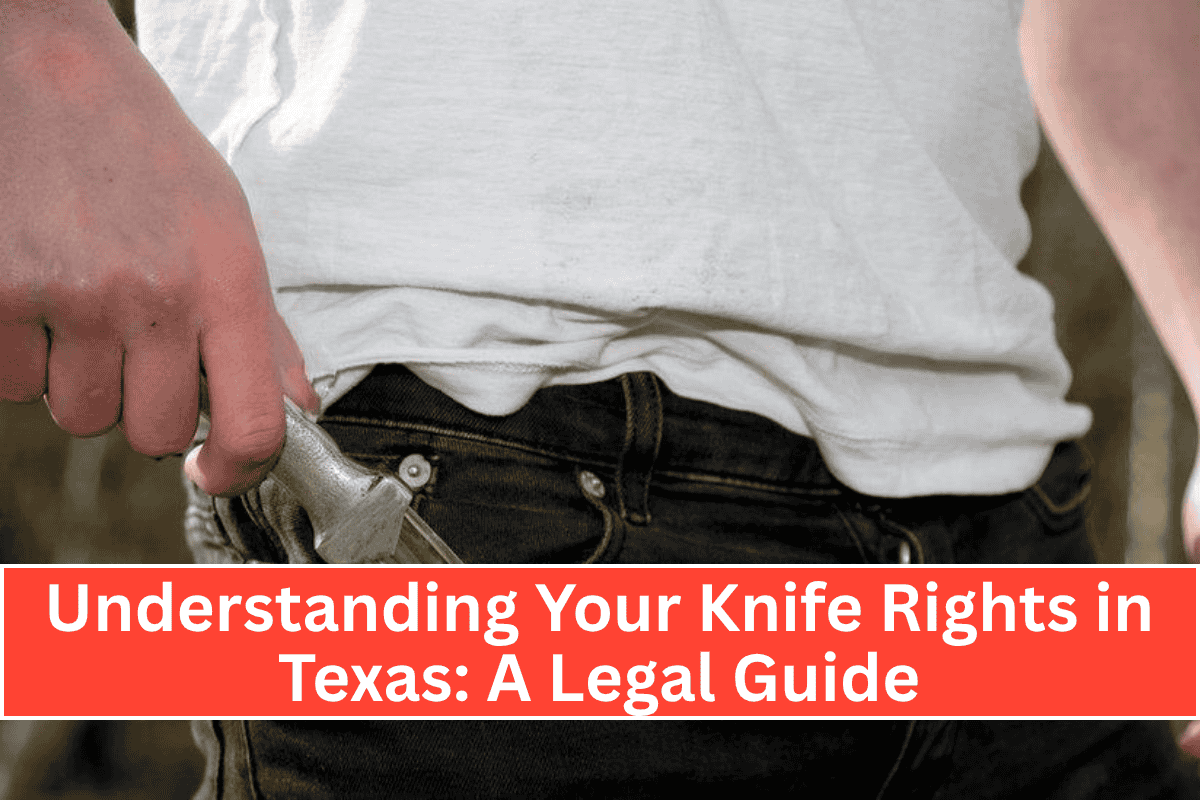Texas is widely recognized for its strong support of gun rights, but it also offers a unique set of freedoms regarding knives.
Whether you’re a knife enthusiast or simply curious about the regulations, it’s crucial to understand the state’s laws concerning knife ownership and carry.
This guide provides an in-depth look at everything you need to know about knives in the Lone Star State.
Overview of Texas Knife Laws
Texas has a reputation for being lenient when it comes to weapons, and knives are no exception. The state allows a broad range of knives to be owned and carried, with certain exceptions based on size, type, and where they are carried.
Texas’ knife laws are mainly governed by state rules, but cities or counties may have additional regulations.
Types of Knives Legal to Own and Carry
In Texas, knives are classified into different categories, and each category has its own rules for ownership and carry. Let’s break it down:
Non-Restricted Knives
There are many types of knives that Texas law allows for ownership and carry, including:
Pocket Knives: These folding knives are the most common and can be carried either openly or concealed.
Fixed-blade Knives: Fixed-blade knives, typically with a full tang, can be legally owned and carried without restrictions, provided they aren’t used for illegal activities.
Restricted Knives
Some knives are more tightly regulated by Texas law:
Switchblades (Automatic Knives): You can own and carry a switchblade, but there are specific conditions. The blade must be under 5.5 inches, and you must be in a lawful situation to carry it.
Ballistic Knives: These knives, which shoot out a blade, are illegal to own or carry in Texas.
Location-Based Restrictions
Even though Texas is fairly permissive about knives, certain places prohibit carrying them, especially larger knives. These include:
Schools: It’s illegal to carry knives on school grounds or within 300 feet of school property.
Government Buildings: Knives are prohibited in places like courthouses, post offices, and other government facilities.
Private Property: Property owners can set their own rules regarding knives. Always check for signage before carrying one on private property.
Concealed vs. Open Carry
Texas law distinguishes between concealed and open carry when it comes to knives:
Concealed Carry: It’s illegal to carry a knife with a blade longer than 5.5 inches concealed, unless you have a concealed handgun license (CHL) that also permits carrying larger knives. Doing so without a CHL can lead to misdemeanor or felony charges.
Open Carry: Knives that are 5.5 inches or smaller can be openly carried in most areas, although some places like schools and government buildings still ban them.
Legal Carry Limits
While you can own many types of knives in Texas, there are limits on carrying them. For instance, any knife with a blade longer than 5.5 inches cannot be carried concealed unless you have a CHL. Some exceptions apply in specific scenarios, like hunting, camping, or on private property.
Carrying Knives for Protection
In Texas, knives can be carried for self-defense purposes, but there are guidelines to follow. If you use a knife in self-defense, the situation will be reviewed to see if the use of the knife was reasonable. If deemed excessive or aggressive, using a knife could result in criminal charges.
Knife Laws for Minors
Minors in Texas are generally not allowed to carry certain knives. While they can possess a knife, carrying one over 5.5 inches can lead to criminal charges unless the minor is on private property or has parental consent for specific uses.
Knife Sales and Transfers
Selling knives in Texas is legal, but certain knives (like switchblades and ballistic knives) have restrictions. Sellers must ensure the knife is lawful to sell to the buyer and ensure that it meets all legal requirements, especially when selling to minors.
Local Ordinances and Restrictions
Even though Texas has state-level knife laws, local cities and counties may impose their own regulations, particularly regarding public carry. It’s essential to check local ordinances to ensure you’re complying with any additional rules that may apply in your area.












